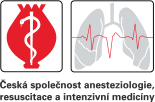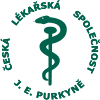Anest. intenziv. Med. 2021;32(2):74-81
Evaluation of the implementation of medical simulations into postgraduate training before completing anesthesiology and intensive care residency programOriginal Article
- 1 Klinika anesteziologie, resuscitace a intenzivní medicíny, Lékařská fakulta Masarykovy univerzity a Fakultní nemocnice Brno
- 2 Centrum pro rozvoj klinických kompetencí, Lékařská fakulta Masarykovy univerzity, Brno
Objective: Successful completion of a simulation course on critical states has recently become required in Anaesthesiology and Intensive Care Board Certification process. Firstly, the objectives of this study were to compare data from self-assessment questionnaires answered by the participants before and after completing high-fidelity simulations and, secondly, to evaluate the perception of these simulations by young trainees and whether they will have an effect on their interest in continuing such a training. Design of the study: Observational; Survey research. Setting of the study: Department of Anesthesiology at University Hospital.
Materials and methods: The target group were trainees enrolled in the residency training program at our department. Each of them completed two high-fidelity simulation sessions. The clinical scenarios focused on emergencies in anesthesiology, i.e. difficult airway management and complications of regional anaesthesia. The simulations were held in an actual operating theatre with complete equipment and participating nurse anaesthetists at all times. Overall performance and skills of each trainee and the nurse were assessed, including their level of cooperation. A structured debriefing providing feedback to the participants was held following each simulation. For study purposes, each trainee answered two questionnaires (one preceding the first simulation and the other following the second). The questions aimed at self-assessment and evaluation of the course as such. Methods of descriptive statistics processed the results.
Results: All of 14 residents enrolled in postgraduate training at our institution had participated in the study. Each of them expressed interest in increasing the frequency of training sessions following the simulations; 13 (93 %) felt motivated to gain new theoretical knowledge. All participants were interested in completing additional simulations.
Conclusion: Despite the relatively small study population, the survey demonstrated this education concept very well accepted. Simulations instigate trainees to deepen their theoretical knowledge and practical skills. From this perspective, medical simulations do have their place in postgraduate training, and their implementation could have a share in increasing erudition in our field.
Keywords: medical simulation, postgraduate training, education, survey.
Received: December 18, 2020; Revised: January 30, 2021; Accepted: February 18, 2021; Prepublished online: April 12, 2021; Published: April 29, 2021 Show citation
| ACS | AIP | APA | ASA | Harvard | Chicago | Chicago Notes | IEEE | ISO690 | MLA | NLM | Turabian | Vancouver |
References
- Al‑Elq AH. Simulation‑based medical teaching and learning. J Fam Community Med. 2010; 17(1): 35-40. doi: 10.4103/1319-1683.68787
 Go to original source...
Go to original source...  Go to PubMed...
Go to PubMed... - Boling B, Hardin‑Pierce M. The effect of high‑fidelity simulation on knowledge and confidence in critical care training: An integrative review. Nurse Educ Pract. 2016; 16(1): 287-293. doi: 10.1016/j.nepr.2015. 10. 004
 Go to original source...
Go to original source...  Go to PubMed...
Go to PubMed... - Parsons JR, Crichlow A, Ponnuru S, Shewokis PA, Goswami V, Griswold S. Filling the Gap: Simulation‑based Crisis Resource Management Training for Emergency Medicine Residents. West J Emerg Med. 2018; 19(1): 205-210. doi: 10.5811/westjem.2017. 10. 35284
 Go to original source...
Go to original source...  Go to PubMed...
Go to PubMed... - Bond WF, Spillane L. The Use of Simulation for Emergency Medicine Resident Assessment. Acad Emerg Med. 2002; 9(11): 1295-1299. doi: 10.1197/aemj.9. 11. 1295
 Go to original source...
Go to original source...  Go to PubMed...
Go to PubMed... - Small SD, Wuerz RC, Simon R, Shapiro N, Conn A, Setnik G. Demonstration of high‑fidelity simulation team training for emergency medicine. Acad Emerg Med Off J Soc Acad Emerg Med. 1999; 6(4): 312-323. doi: 10.1111/j.1553-2712.1999.tb00395.x
 Go to original source...
Go to original source...  Go to PubMed...
Go to PubMed... - Jentsch F, Curtis M. Simulation in Aviation Training. 1st Ed. Routledge; 2017.
 Go to original source...
Go to original source... - Lester E, Georgiou A, Hein M, Littlepage G, Moffett R, Craig P. Improving Aviation Students' Teamwork, Problem Solving, Coordination, and Communications Skills During a High‑Fidelity Simulation. 19th Int Symp Aviat Psychol. 2017; 119-124. https://corescholar.libraries.wright.edu/isap_2017/49
- Bond WF, Lammers RL, Spillane LL, Smith‑Coggins R, Fernandez R, Reznek MA, et al. The Use of Simulation in Emergency Medicine: A Research Agenda. Acad Emerg Med. 2007; 14(4): 353-363. doi: 10.1197/j.aem.2006. 11. 021
 Go to original source...
Go to original source...  Go to PubMed...
Go to PubMed... - Klincová M, Trčková A, Chlupová J, Jor O, Klabusayoá E. Pohled mladých anesteziologů a intenzivistů na specializační vzdělávání v oboru anesteziologie a intenzivní medicína v České republice: dotazníková studie. Anest. a intenziv. Med. 2019; 30(3-4): 162-169.
 Go to original source...
Go to original source... - Veselá L. Každý pátý medik plánuje pracovat v cizině, odhalil průzkum. Portál idnes.cz [online]. 2019. Dostupné z: https://www.idnes.cz/zpravy/domaci/zdravotnictvi‑lekari‑medici‑zdravotnictvi‑nedostatek‑lekaru.A190410_123108_domaci_linv
- Ministerstvo zdravotnictví České republiky. Anesteziologie_a_intenzivní_medicína_Věstník_MZ_2019_specializovaný_výcvik. Portál mzcr.cz [online]. 2019. Dostupné z: https://www.mzcr.cz/vzdelavaci‑programy-2019-lekari/
- Shailaja S, Hilda S, Pinto P, D'Cunha R, Mahmood L, Hegde R. Evaluation of resident satisfaction and change in knowledge following use of high‑fidelity simulation teaching for anaesthesia residents. Indian J Anaesth. 2019; 63(11): 908. doi: 10.4103/ija.ija_133_19
 Go to original source...
Go to original source...  Go to PubMed...
Go to PubMed... - Morgan P, Tarshis J, LeBlanc V, Cleave‑Hogg D, DeSousa S, Haley MF, et al. Efficacy of high‑fidelity simulation debriefing on the performance of practicing anaesthetists in simulated scenarios. Br J Anaesth. 2009; 103(4): 531-537. doi: 10.1093/bja/aep222
 Go to original source...
Go to original source...  Go to PubMed...
Go to PubMed... - Paige J, Kozmenko V, Yang T, Gururaja RP, Hilton ChW, Cohn I jr., et al. High‑fidelity, simulation‑based, interdisciplinary operating room team training at the point of care. Surgery 2009; 145(2): 138-146. doi: 10.1016/j.surg.2008. 09. 010
 Go to original source...
Go to original source... - Motola I, Devine LA, Chung HS, Sullivan JE, Issenberg SB. Simulation in healthcare education: a best evidence practical guide. AMEE Guide No. 82. Med Teach. 2013; 35(10): e1511-e1530. doi: 10.3109/0142159X.2013.818632
 Go to original source...
Go to original source...  Go to PubMed...
Go to PubMed... - Turner S, Harder N. Psychological Safe Environment: A Concept Analysis. Clin Simul Nurs. 2018; 18: 47-55. doi: 10.1016/j.ecns.2018. 02. 004
 Go to original source...
Go to original source...





